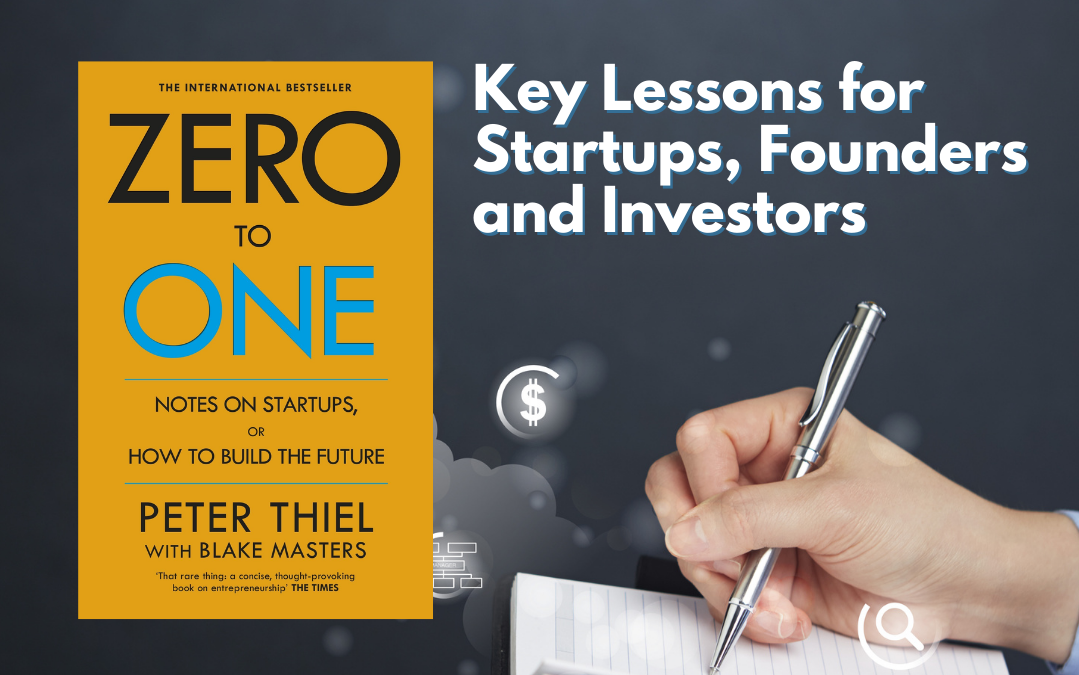Author’s name: Arif Jamal
Author’s affiliation: Faculty of Engineering and Technology, JMI
Author’s contact info: [email protected]
Recently, I went to a book store and asked the store manager to pick any book of his choice that could help me learn about startups and businesses. I found a book; let me rephrase it, a book found me, and the book was called ‘Zero to One’ written by Peter Thiel.
I, naturally being a great admirer of his contribution in the field of the internet and the companies he formed, made me read his book with more enthusiasm.
Fun Fact: Ritesh Agarwal, the 28-year-old charismatic founder of the OYO Rooms, the fastest growing network of hotels, offline and online; is one of the persons who got the Thiel Fellowship and is currently at a net worth of over a billion dollars.
Peter Thiel co-founded and was the CEO of PayPal. In the year 2002, he sold the company to eBay for a whopping sum of 1.5 billion dollars and the members of the team that he handpicked and hired to make PayPal later went on the create companies like YouTube, Yelp.com, LinkedIn etc. The team members were the members of his original first team to make something as big as PayPal, and then each of his team members was able to make another billion-dollar company. So how did he do it? Was it a coincidence, or Peter Thiel could decode learning that could fundamentally change the world forever and the way we use the internet. In my opinion, it was not a coincidence. Instead, his deep-rooted understanding of the ideas and business ethics made an ordinary CEO into something that civilization will remember for a long time.
In his book, he talks about three counterintuitive ways of thinking and making a big company or a better future.
Let’s take a look at those ideas-
- Bet your company on contrarian skills
- Start by dominating small markets
- Strive to be a monopoly
Let’s have a look at each of them accordingly;
- The first is to ‘bet in the contrarian truth.’
What are the few truths that most people agree with you on? Steve Jobs, who was able to make the most profitable company in the history of humankind, understood that people wouldn’t be using a physical keyboard for typing in the future. Instead, they would use their smartphones to be touch keypad enable to write and share whatever they want.
Uber and Airbnb bet on the idea that in time to come, people would feel more safe and convenient in sitting in a starters car or live in a stranger’s apartment than buying their own car or paying a lot of money in hotels. Thiel explains the idea in the most straightforward words. Fifteen years back, if someone came to you and told you that you would feel better and safer letting your kid drive in a strangers car than getting them a car, you would laugh at it. Still, today, people with a high net worth in every part of the world get their kids unlimited Uber drive rather than giving them cars to drive. They feel their kids or parents or spouse take Uber as they think they would be safer and less susceptible to any jeopardy.
Peter Thiel says, ‘All failed companies are the same: they fail to escape competition.’
He puts a caution that bets on the contrarian truth that is almost approaching rather than something whose right time hasn’t yet come.
- In his second idea, he talks about the concept in which he says that to make a big company ‘start by dominating small markets.’
Jeff Bezos didn’t start Amazon as an ‘everything market’, instead he began with a niche market. The online store for selling books. The books were low cost, and the ideal customer would get them, and once they start buying books, they would begin to buy other things that he would sell. Thiel says, ‘ Whoever is first to dominate the most important market segment with viral potential will be the last mover in the whole market.’ Amazon was wise enough to identify the market and put their money in the right place. The idea is to find something that solves the problem of hundreds of people and then do it and keep on updating the mechanism; this is undoubtedly the correct way of keeping up with the small market and then jump into the big market.
- The third idea is, ‘strive to be a monopoly.’
Evil monopolies bully competitor. They take advantage of their customers’ lack of choices. At the same time, good monopolies use excess profits to give back to society.
Why do we use Google instead of Bing, Apple instead of any other brand, Amazon to get your stuff delivered and Facebook to connect with friends. There are possible alternatives for each of these brands, but they have created a monopoly over the market in such a way and with such high impact that we don’t see any company beating them in close time. Google gives free of cost maps, location of places nearby; Amazon delivers your order safely and conveniently to your place, taking away all the hustle you need to do. This would keep getting them better and less competition available to dictate the market norms.
These were my observations after reading the book.
Reference:
Zero to One: Notes on Startups, or How to Build the Future; by Peter Thiel


Recent Comments